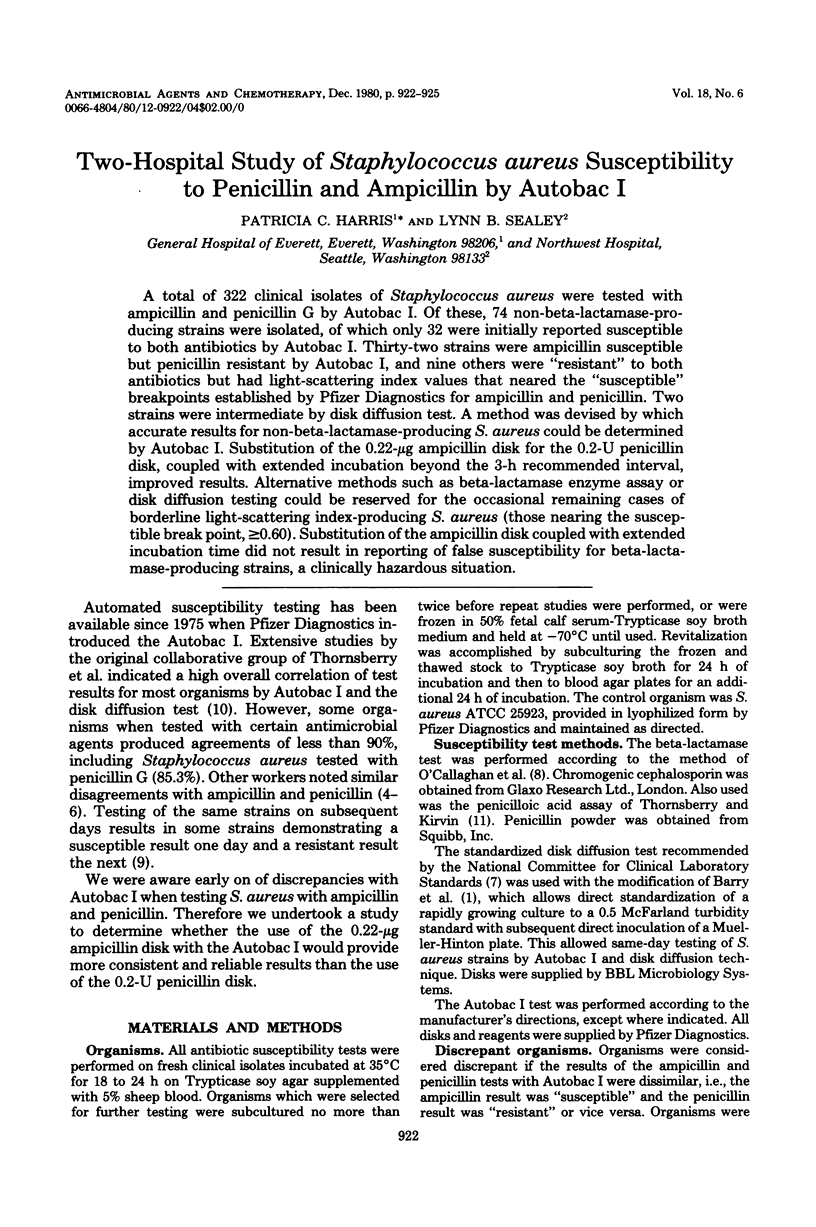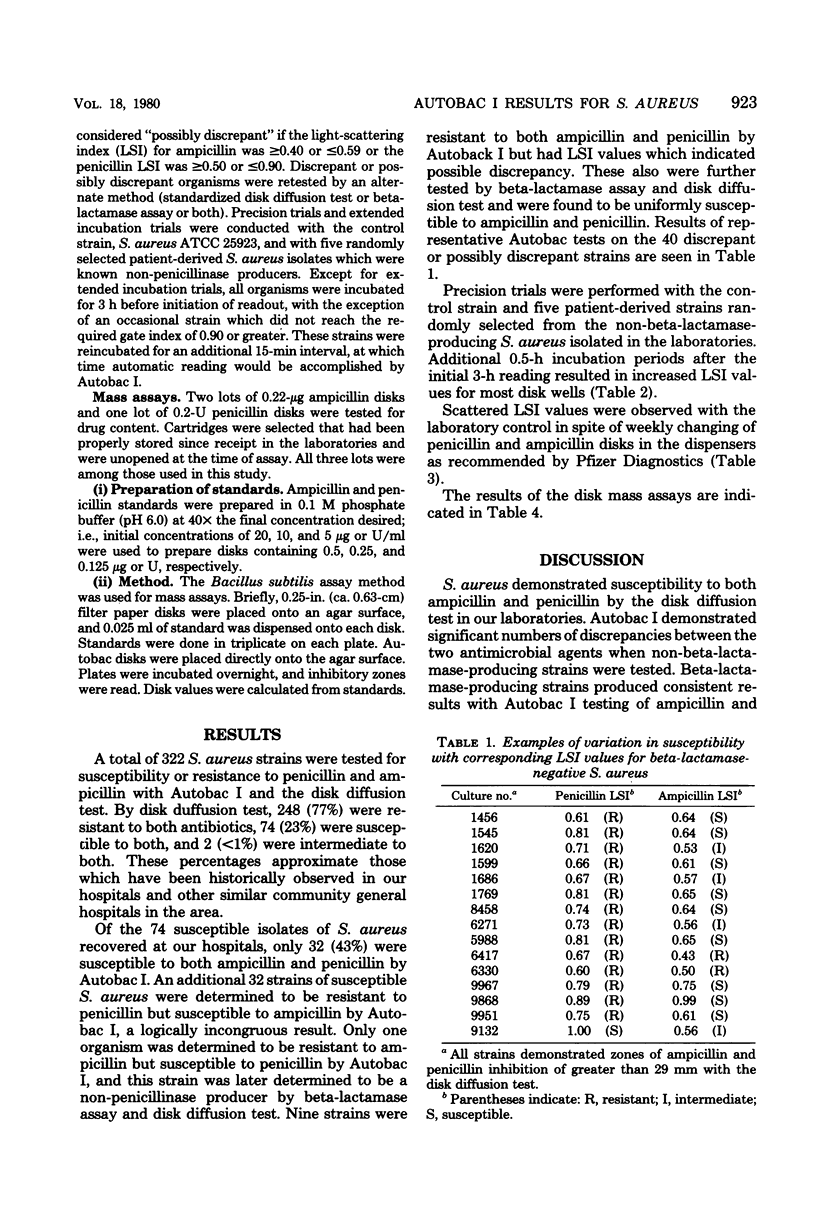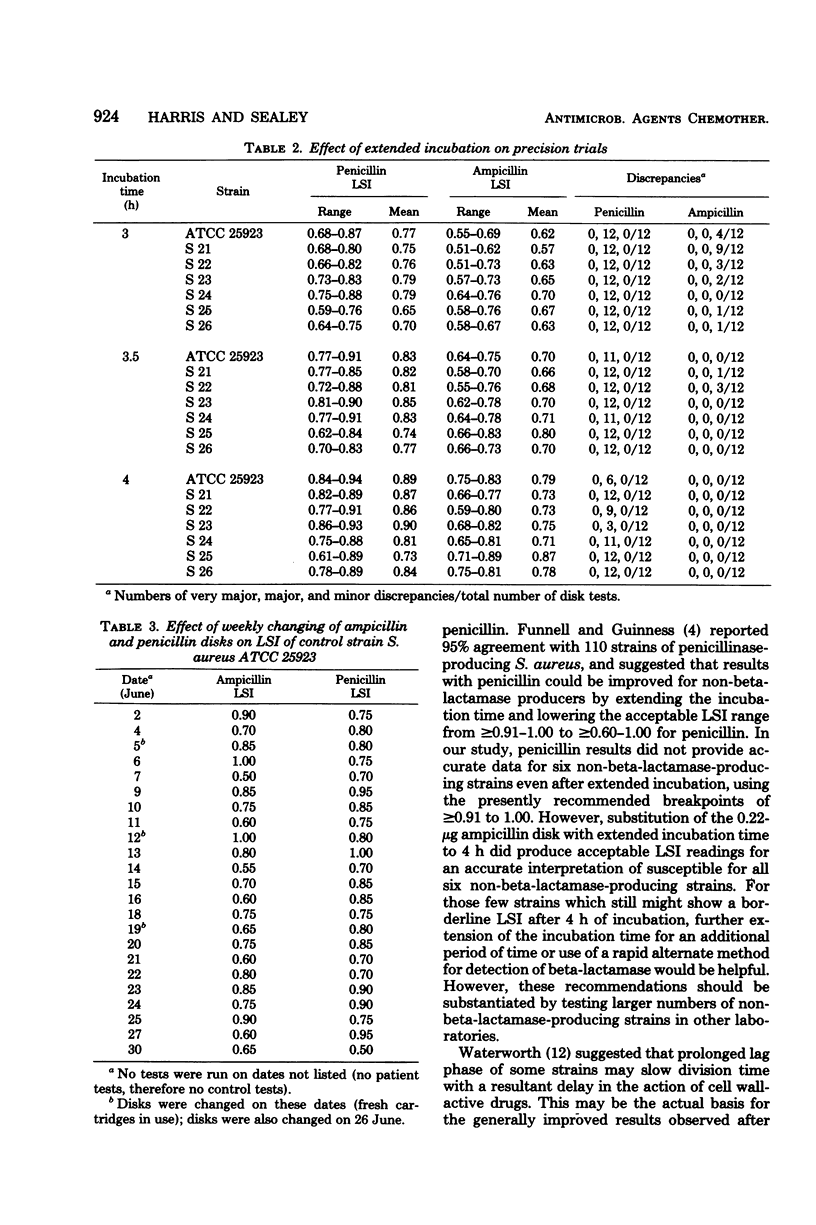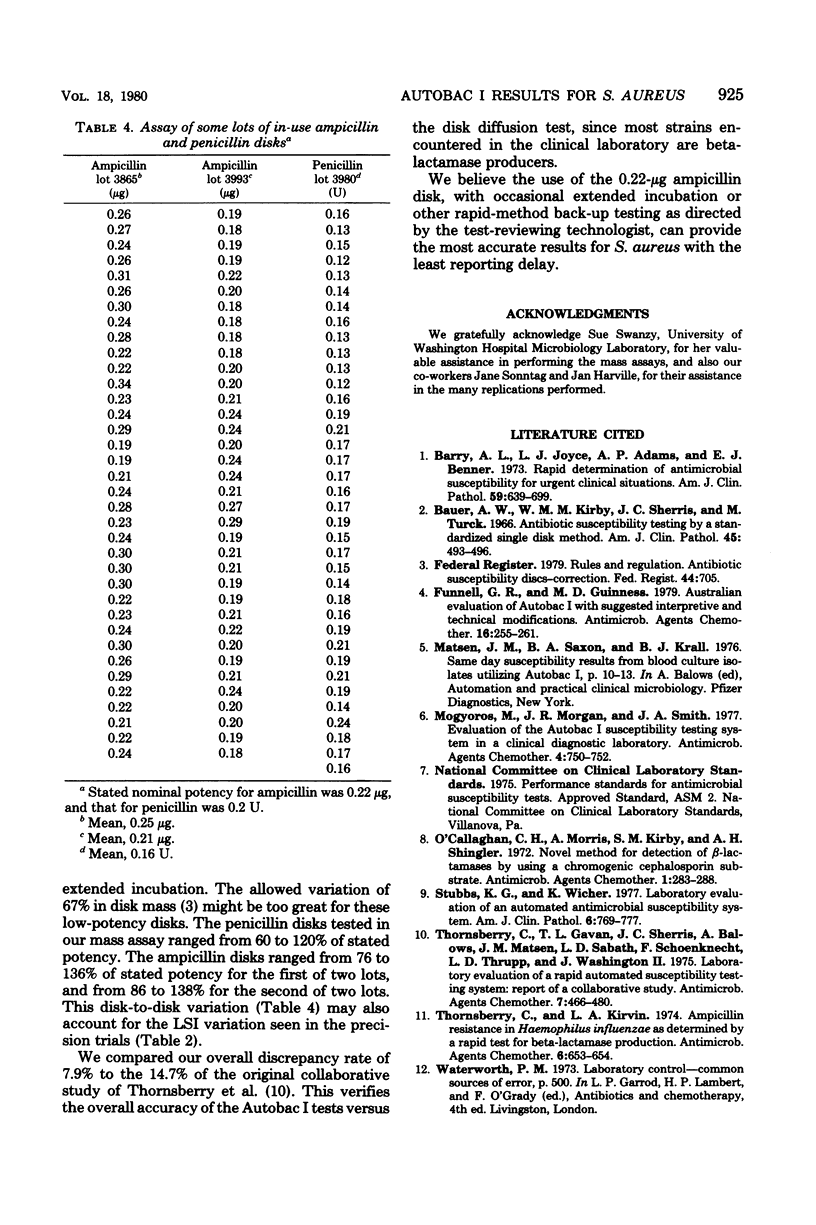Abstract
A total of 322 clinical isolates of Staphylococcus aureus were tested with ampicillin and penicillin G by Autobac I. Of these, 74 non-beta-lactamase-producing strains were isolated, of which only 32 were initially reported susceptible to both antibiotics by Autobac I. Thirty-two strains were ampicillin susceptible but penicillin resistant by Autobac I, and nine others were "resistant" to both antibiotics but had light-scattering index values that neared the "susceptible" breakpoints established by Pfizer Diagnostics for ampicillin and penicillin. Two strains were intermediate by disk diffusion test. A method was devised by which accurate results for non-beta-lactamase-producing S. aureus could be determined by Autobac I. Substitution of the 0.22-microgram ampicillin disk for the 0.2-U penicillin disk, coupled with extended incubation beyond the 3-h recommended interval, improved results. Alternative methods such as beta-lactamase enzyme assay or disk diffusion testing could be reserved for the occasional remaining cases of borderline light-scattering index-producing S. aureus (those nearing the susceptible break point, greater than or equal to 0.60). Substitution of the ampicillin disk coupled with extended incubation time did not result in reporting of false susceptibility for beta-lactamase-producing strains, a clinically hazardous situation.
Full text
PDF



Selected References
These references are in PubMed. This may not be the complete list of references from this article.
- Barry A. L., Joyce L. J., Adams A. P., Benner E. J. Rapid determination of antimicrobial susceptibility for urgent clinical situations. Am J Clin Pathol. 1973 May;59(5):693–699. doi: 10.1093/ajcp/59.5.693. [DOI] [PubMed] [Google Scholar]
- Bauer A. W., Kirby W. M., Sherris J. C., Turck M. Antibiotic susceptibility testing by a standardized single disk method. Am J Clin Pathol. 1966 Apr;45(4):493–496. [PubMed] [Google Scholar]
- Funnell G. R., Guinness M. D. Australian evaluation of Autobac I with suggested interpretive and technical modifications. Antimicrob Agents Chemother. 1979 Sep;16(3):255–261. doi: 10.1128/aac.16.3.255. [DOI] [PMC free article] [PubMed] [Google Scholar]
- Mogyoros M., Morgan J. R., Smith J. A. Evaluation of the Autobac 1 susceptibility testing system in a clinical diagnostic laboratory. Antimicrob Agents Chemother. 1977 Apr;11(4):750–752. doi: 10.1128/aac.11.4.750. [DOI] [PMC free article] [PubMed] [Google Scholar]
- O'Callaghan C. H., Morris A., Kirby S. M., Shingler A. H. Novel method for detection of beta-lactamases by using a chromogenic cephalosporin substrate. Antimicrob Agents Chemother. 1972 Apr;1(4):283–288. doi: 10.1128/aac.1.4.283. [DOI] [PMC free article] [PubMed] [Google Scholar]
- Stubbs K. G., Wicher K. Laboratory evaluation of an automated antimicrobial susceptibility system. Am J Clin Pathol. 1977 Dec;68(6):769–777. doi: 10.1093/ajcp/68.6.769. [DOI] [PubMed] [Google Scholar]
- Thornsberry C., Gavan T. L., Sherris J. C., Balows A., Matsen J. M., Sabath L. D., Schoenknecht F., Thrupp L. D., Washington J. A., 2nd Laboratory evaluation of a rapid, automatic susceptibility testing system: report of a collaborative study. Antimicrob Agents Chemother. 1975 Apr;7(4):466–480. doi: 10.1128/aac.7.4.466. [DOI] [PMC free article] [PubMed] [Google Scholar]
- Thornsberry C., Kirven L. A. Ampicillin resistance in Haemophilus influenzae as determined by a rapid test for beta-lactamase production. Antimicrob Agents Chemother. 1974 Nov;6(5):653–654. doi: 10.1128/aac.6.5.653. [DOI] [PMC free article] [PubMed] [Google Scholar]


